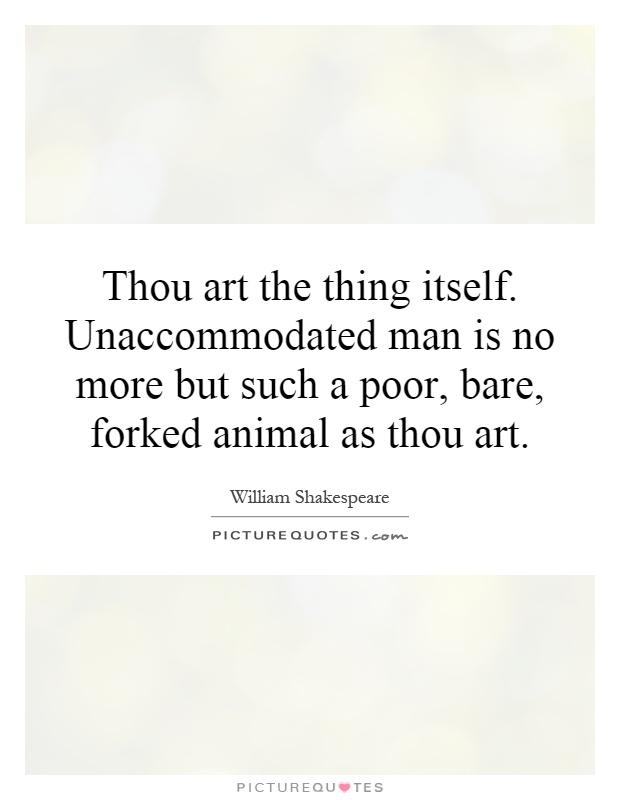Thou art the thing itself. Unaccommodated man is no more but such a poor, bare, forked animal as thou art

Thou art the thing itself. Unaccommodated man is no more but such a poor, bare, forked animal as thou art
In William Shakespeare's play "King Lear," the character of Edgar speaks these words to his father, Gloucester, who has been blinded and cast out by his own son. The quote reflects the theme of human nature and the vulnerability of man when stripped of societal comforts and status.The phrase "Thou art the thing itself" suggests that at our core, we are all the same. Regardless of our social standing or material possessions, we are all human beings with the same basic needs and desires. When stripped of these external trappings, we are left with our true selves, exposed and vulnerable.
"Unaccommodated man is no more but such a poor, bare, forked animal as thou art" further emphasizes this idea. Without the comforts and accommodations of society, man is reduced to his most basic form - a mere animal struggling to survive in a harsh and unforgiving world. The image of a "poor, bare, forked animal" evokes a sense of primal instinct and raw vulnerability, highlighting the fragility of human existence.
Through this quote, Shakespeare explores the nature of humanity and the impact of societal structures on our sense of self. When we are stripped of our titles, possessions, and social status, what remains is our true essence - a vulnerable and exposed creature struggling to survive in a world that can be cruel and unforgiving.
The quote also serves as a commentary on the transient nature of power and wealth. In the play, characters like Lear and Gloucester experience a dramatic fall from grace, losing everything they once held dear. This serves as a reminder that material possessions and social status are fleeting, and that true worth lies in our humanity and our ability to connect with others on a deeper level.
Overall, Shakespeare's words in "King Lear" remind us of the inherent vulnerability of human existence and the importance of recognizing our shared humanity, regardless of our external trappings.












 Friendship Quotes
Friendship Quotes Love Quotes
Love Quotes Life Quotes
Life Quotes Funny Quotes
Funny Quotes Motivational Quotes
Motivational Quotes Inspirational Quotes
Inspirational Quotes